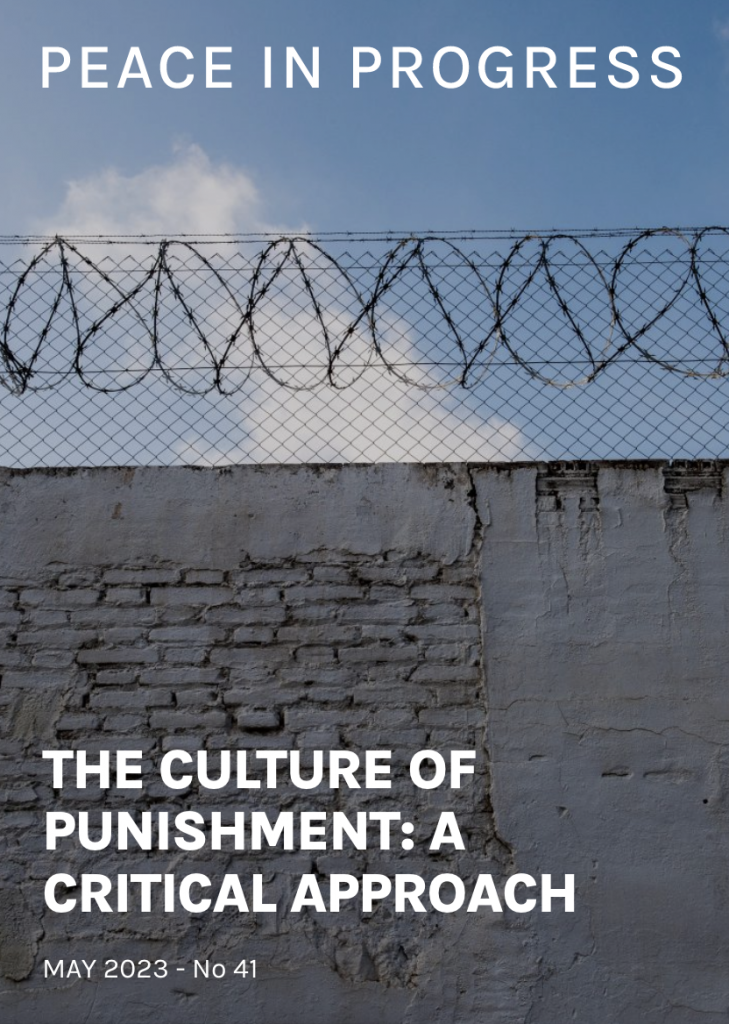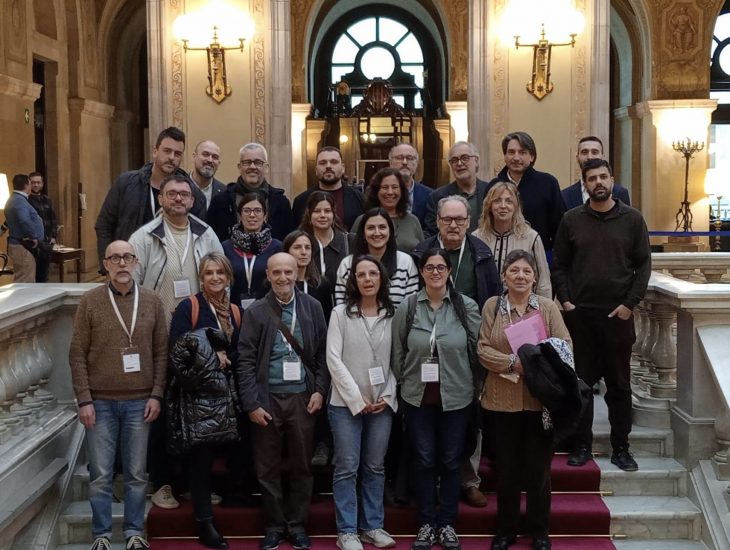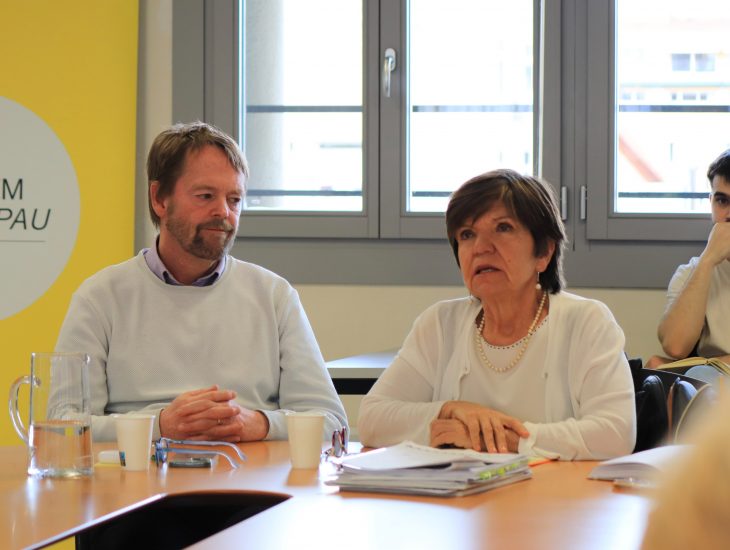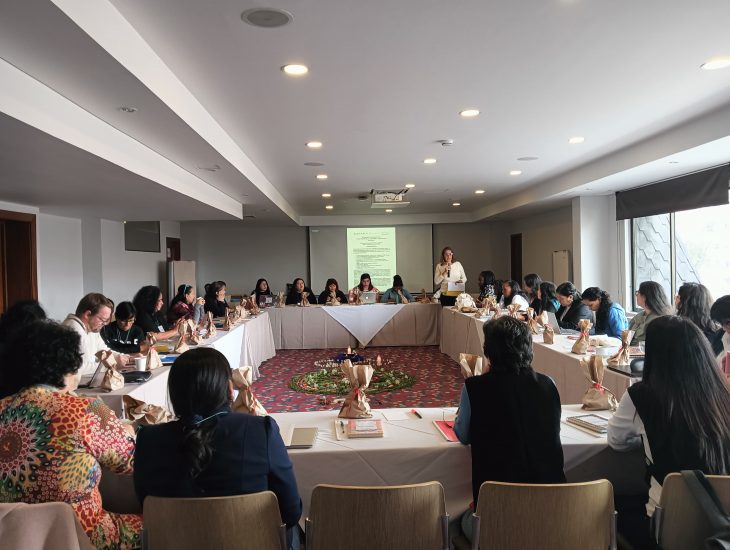The culture of punishment and punitivism normalize violence and limit the options to build a peaceful society. Many punitive measures, such as prisons, video surveillance or police forces, are immovable and, in some cases, are increasing. What supports that paradigm? Are there more humane, just and effective alternatives to address violence? How are the trinomial security, justice and peace interrelated?
The new monograph of Peace in Progress magazine, “The culture of punishment: a critical approach” (number 41), reflects on these issues through eight central articles and an interview.
Sandra Martínez Domingo, the coordinator of the monograph and head of the “Alternatives of security” area of the ICIP, offers us an initial reflection on the interrelationship between the concepts of peace, security and justice and exposes the critical elements of the dichotomy punitivism-antipunitivism.
Next, the political scientist and criminologist Albert Sales Campos exposes the failure of punitive policies (massification of prisons, instrumentalization of victims, discourse of fear) and claims, as an alternative, to invest in social policies and violence prevention.
Criminologist Paz Francés Lecumberri also focuses on the discourse of fear and the media and political parties’ role in creating myths that promote punitiveness.
The philosopher Clara Serra delves into the feminist perspective and the challenges that feminism has in the management of violence.
The conflictologist Noe Ayguasenosa Soro advocates placing the ethics of care at the centre of community relations and the public model of managing insecurities and injustices.
On the effectiveness of restorative and transformative justice, as opposed to the failures of retributive justice, we have the analysis of Teiahsha Bankhead and Rachel V. Brown, leaders of organizations that promote successful restorative practices in schools, communities and the juvenile justice system.
Finally, lawyers Claudia Cesaroni and Paola Zavala Saeb reflect on prisons as the ultimate expression of punitiveness and the central axis of criminal control mechanisms worldwide. They do it based on the cases of two homicides with very unequal consequences in Argentina and the failure of punitive measures in Mexico, a country with high levels of violence and impunity.
The monograph closes with an interview with Howard Zehr, a referent of the modern concept of restorative justice, about the opportunities offered by restorative practices, which place emphasis on who has received the damage, not on who is responsible.





